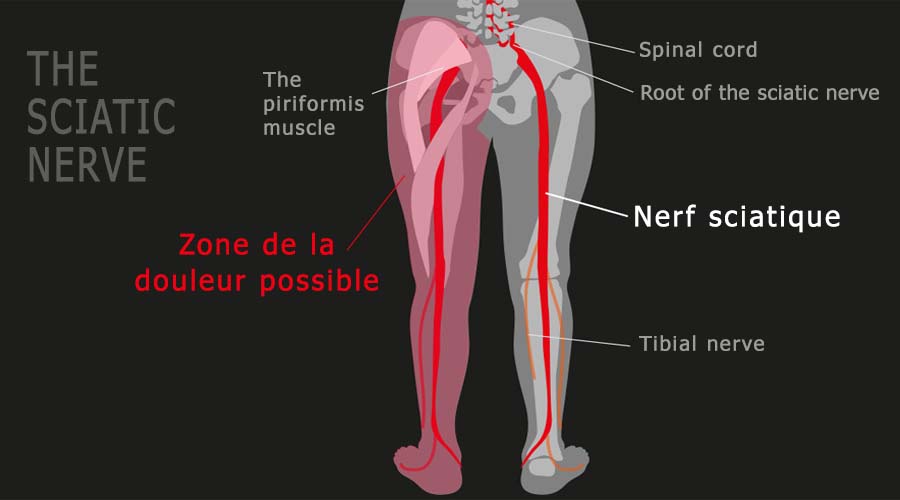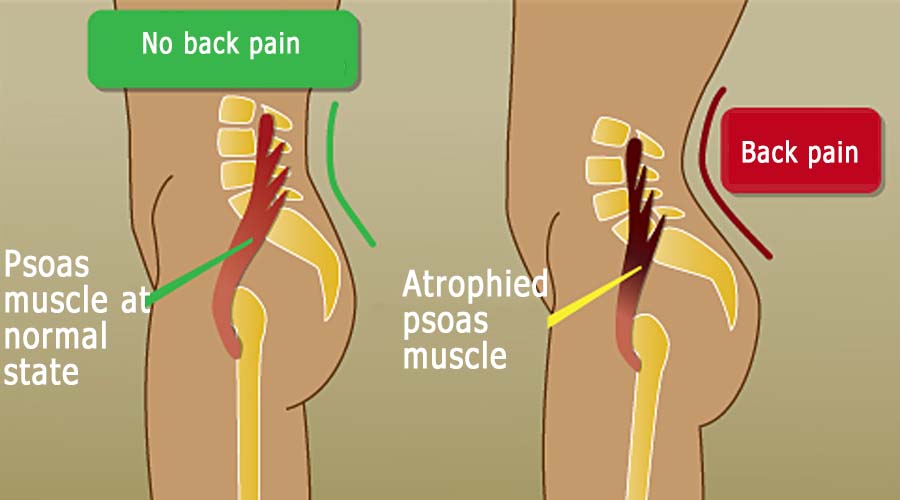Are you struggling with chronic back pain?
Do you have difficulty moving and moving?
In fact, millions of people have or will have back pain like you, and if your solution is to take Tylenol for pain relief, then you are only making your problem worse. Watch the elderly with their chronic back pain, and a lot of them have taken Tylenol or other medications without really having healthy and effective results.
Why repeat the same mistakes they made, believing that you will have different results?
Like any other pain medication, Tylenol drugs our body to stop feeling the effects of pain, but other kinds of drugs are much more powerful than Tylenol.
These are the drugs that we create in our minds through deeply learned habits that don’t work for our well-being and prevent us from realizing where this belief that drugs can replace our natural healing power originated.
If you really want to get rid of your chronic back pain, you need to understand that the solution isn’t in the drugstore but inside you when you accept and act on what works for your well-being.
What is Tylenol?
Tylenol is acetaminophen that is among the most common over-the-counter pain relievers.
In addition to being widely sold, acetaminophen is found in other medicines, including those used for coughs and colds. These combinations increase the likelihood that a person taking acetaminophen will add a second medication, such as cough syrup, without realizing that the cough syrup also contains acetaminophen.
Acetaminophen is a pain reliever drug acting on the central nervous system and may be recommended for back and other forms of musculoskeletal pain.
It may be recommended for people who cannot take nonsteroidal anti-inflammatory drugs such as ibuprofen (Advil), aspirin, or celecoxib (Celebrex), due to stomach irritation.
Other people may be prescribed acetaminophen because of concerns about the increased risk of bleeding from other drugs that are blood thinners.
How is Tylenol used for back pain?
Tylenol or acetaminophen is available in different strengths without a prescription, including regular, extra strength, and arthritis pain formulas.
Although over-the-counter acetaminophen is often recommended for treating mild to moderate pain, a doctor may recommend a combination of acetaminophen and opioids in certain situations, such as severe back pain.
Acetaminophen has fewer risks and potential complications than many other pain relievers. Some of the potential benefits of acetaminophen include:
- Lack of tolerance where a higher dose is needed to obtain relief;
- It rarely produces gastrointestinal or stomach problems;
- Very few people are allergic to it;
- When taken in the recommended doses, it has the ability to relieve back pain.
Risks associated with Tylenol
The risk of overdose, which can lead to acute liver failure, is greatest with acetaminophen. People may not be aware that acetaminophen is used in combination with other over-the-counter medicines, making it easier to take more than the recommended dose.
Overdosing Tylenol for your back pain relief, whether intentional or accidental, is serious and can cause damage to your liver and can be fatal. Anyone who shows signs of an overdose needs immediate medical attention. Signs of an acetaminophen overdose are seen by:
- Nausea and vomiting;
- Abdominal pain, especially on the right side;
- Loss of appetite.
Because acetaminophen is metabolized in the liver, people with liver infections, certain illnesses, or chronic alcohol use may be more likely to overdose.
Questioning the effectiveness of Tylenol for back pain
While Tylenol is effective in other cases, such as headaches or fever, research has questioned the effectiveness of acetaminophen in controlling pain and speeding up recovery from headaches. Severe backs.
An analysis of several clinical studies found that acetaminophen was ineffective in relieving lower back pain and minimally helping osteoarthritis, the most common form of arthritis and often linked to back pain. Another study concluded that acetaminophen did not work better than a placebo in shortening the recovery time in patients with acute back pain.
Doctors’ reactions to the research results have been mixed. While some supported the results, others found fault with the studies and suggested that more research is needed before concluding that acetaminophen is not helpful.
People respond to pain relievers differently, so that acetaminophen may be a good choice for several people. People should talk to a doctor to find the best form of relief for their back pain.
Why does this drug not work for chronic back pain?
Back pain caused by age or arthritis is inflammatory, but sciatica is not. So it makes sense that Tylenol or other medications don’t work very well in relieving nerve-related sciatica pain.
So if you are taking Tylenol or other pain relievers and are not getting relief, the first thing to do is determine the source or type of your back pain. Your doctor can help, but here’s a hint: If the pain in your back also extends to one or both legs, chances are it’s nervous.
The good news is that sciatica often goes away on its own within weeks to months. In the meantime, your doctor may prescribe physical therapy or oral steroids to provide some relief.
If your back pain isn’t nerve-related, it’s likely caused by soft tissue inflammation or muscle atrophy, and the pain relievers are more likely to provide at least a little short-term relief.
However, they do not work for everyone, and on top of that, these drugs are just unnatural solutions.

Courtesy of Studiogym.com
A preventive solution and a corrective solution for your back pain
Most people who have suffered from back pain know that over-the-counter medications are of no help. These unnatural solutions can help sometimes, but these drugs will never replace natural solutions.
Worse, they can create harmful habits and addictions, not to mention the high costs of obtaining them for a full year.
What works is various lifestyle changes and natural corrective treatments that can help you never take Tylenol or other back pain medications again.
However, as with any problem, there are two solutions. The reactive one to correct the facts quickly and the longer-term creative one that changes the cause of what gave rise to this effect, to this problem.
1. The preventive or creative solution
Your obliques and your vertebral muscles. Because you are less active with age, the muscles atrophy and become less elastic, so you give birth to your lower back pain. So, to prevent your back pain from recurring, one thing that has always been proven is to stay active and do exercises that strengthen the core, as you need to have a spine with a strong base and strengthen your abdominal muscles.
Stretching can also be beneficial by keeping muscles relaxed and reducing the risk of further injury. The more active and functioning your muscles are, the less weight and strain the spine has to support.
Most people with chronic back pain can’t find anything that will cure it completely, but trial and error are, in fact, the best preventative solution that can help you become aware of your real cause or your habit that gave birth to it. And which gives birth to your back pain.

2. The corrective or reactive solution
While waiting to find what is giving birth to your back pain, it is essential to temporarily relieve your pain in a natural way and apply a corrective solution to feel good.
The good news, choosing a therapeutic massage at home can help you relieve your chronic back pain and examine and understand the origins of the cause to put an end to this problematic situation for good.
This type of massage helps in rehabilitation, pain and injury management by systematically assessing and treating muscles, tendons, ligaments, and connective tissue in affected areas.
Choose massage therapists who are attentive to your situation.
If you want a unique massage to relax or free yourself from your pain, discomfort, pain or suffering, isn’t it wise and sensible to turn to massage therapists who know what you are doing? Live?





